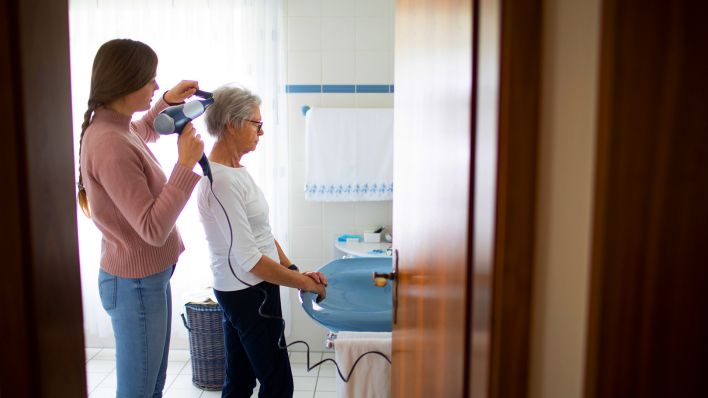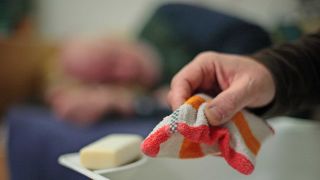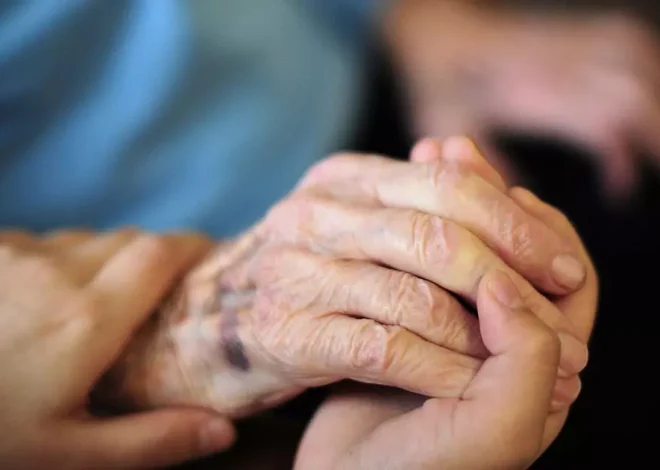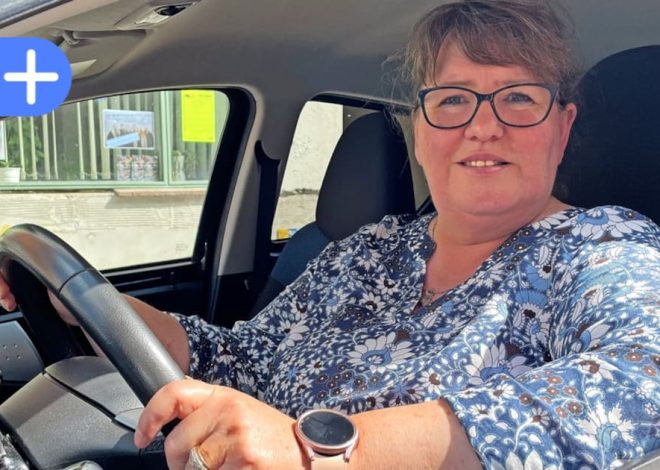
Brandenburg “Pact for Care”: Much praise and little criticism in the final report
Final report
–
Much praise and little criticism for Brandenburg’s “Pact for Care”
Wed 05.06.24 | 13:29 | From

Those who provide care at home should receive support. This “pact for care” – a focus of the Brandenburg coalition agreement – has been scientifically examined. The evaluation sees a lot of good – and potential for improvement. By B. Raddatz and A. Hewel
- Almost 185,000 people in Brandenburg are in need of care
- State government pays up to 20 million euros annually for counseling structures for relatives
- Suggestions for improvements in short-term care
Maria Leitner knows well what it means to care for a relative at home. Her grandmother was diagnosed with dementia. At first, her granddaughter cared for her at home – and was annoyed when she had to explain things for the fifth time, says the woman from Ludwigsfelde.
Then she attended an eight-week seminar, paid for by her health insurance. She learned to understand her grandmother and her illness better – and at the same time met other relatives. “I am really grateful for this opportunity and have seen that I am not alone, but that other participants have similar problems,” says Maria Leitner. Today, her grandmother is cared for in a nursing home due to her advanced age.
Nevertheless, her granddaughter continues to meet with other caring relatives, because the seminar gave rise to a self-help group in Ludwigsfelde. The advice is financed by the “Care on Site” program. It is one of over 600 projects nationwide and the “heart” of the so-called Pact for Care, which was adopted in 2020 on the initiative of Brandenburg’s Social Minister Ursula Nonnemacher (Greens).
Lack of skilled workers and demographic change
According to the most recent nursing care statistics from 2021, almost 185,000 people in Brandenburg were in need of care, almost 87 percent of whom are cared for at home – the highest figure in Germany. Social Minister Nonnemacher is certain that many simply cannot afford a place in a nursing home. But that is only part of the truth. In the hospital or nursing home, skilled workers are needed, but at home only relatives are needed.
“Outpatient care, which is supported by day care, short-term care and voluntary services, is always cheaper and thus the shortage of skilled workers is kept somewhat under control,” says Nonnemacher.
It is important to the Green politician to stress that she does not want to leave the relatives alone with this task. She went to the site to see for herself and had the pact’s measures scientifically evaluated. Nonnemacher will present the almost 180-page report to the Health Committee in the Brandenburg State Parliament on Wednesday.
Care centers as important contact points
In addition to the projects in the municipalities, the pact consists of three further pillars. These include investment programs for short-term and day care, measures for training and securing skilled workers, and the expansion of so-called care centers. These now exist at 45 locations.
Many measures are being taken to make it easier for relatives to provide care, for example by purchasing technical aids in the care centers, says Potsdam social counselor Manuela Brockmeier. They also want to offer video consultations here soon. A model apartment has been built in Frankfurt (Oder) that can be shown to relatives and their family members in need of care. Other centers offer mobile consultations.
Suggestions for improvements in short-term and day care
Such offers, such as those provided by the care centers, relieve them of the most pressing questions, says Andreas Kaczynski, chairman of the Paritätische in Brandenburg. He is also chairman of the state care committee. The money provided by the state government has helped here. However, short-term and day care is also important so that relatives can also pursue other activities. “Otherwise you don’t get any breathing room,” says Kaczynski.
Less bureaucracy required
The scientific evaluation shows that the concept needs to be improved. The funds have so far been used to create, among other things, just over 50 new short-term care places in five facilities and more than 300 new day care places in 18 facilities. More are planned by the end of the year.
Instead of investing in short-term care, the money would be better kept in reserve, similar to emergency care in hospitals, says the final report. And then it could be accessed when it is needed, for example when more people need a place in short-term care. The municipalities and districts surveyed also demanded a reduction in bureaucracy and financial security for newly created positions in the projects.
Social Minister Nonnemacher says she has heard the criticism. Nevertheless, the “Pact for Care” is a success because all districts and independent cities as well as 85 percent of communities, municipalities and offices are participating. All in all, budget funds of up to 20 million euros can be accessed annually.
In view of the Brandenburg state elections in September, it is completely unclear whether the project will continue in this form. Nonnemacher certainly hopes so.
Broadcast: rbb24, 05.06.2024, 4 p.m.

Ethel Purdy – Medical Blogger & Pharmacist
Bridging the world of wellness and science, Ethel Purdy is a professional voice in healthcare with a passion for sharing knowledge. At 36, she stands at the confluence of medical expertise and the written word, holding a pharmacy degree acquired under the rigorous education systems of Germany and Estonia.
Her pursuit of medicine was fueled by a desire to understand the intricacies of human health and to contribute to the community’s understanding of it. Transitioning seamlessly into the realm of blogging, Ethel has found a platform to demystify complex medical concepts for the everyday reader.
Ethel’s commitment to the world of medicine extends beyond her professional life into a personal commitment to health and wellness. Her hobbies reflect this dedication, often involving research on the latest medical advances, participating in wellness communities, and exploring the vast and varied dimensions of health.
Join Ethel as she distills her pharmaceutical knowledge into accessible wisdom, fostering an environment where science meets lifestyle and everyone is invited to learn. Whether you’re looking for insights into the latest health trends or trustworthy medical advice, Ethel’s blog is your gateway to the nexus of healthcare and daily living.




